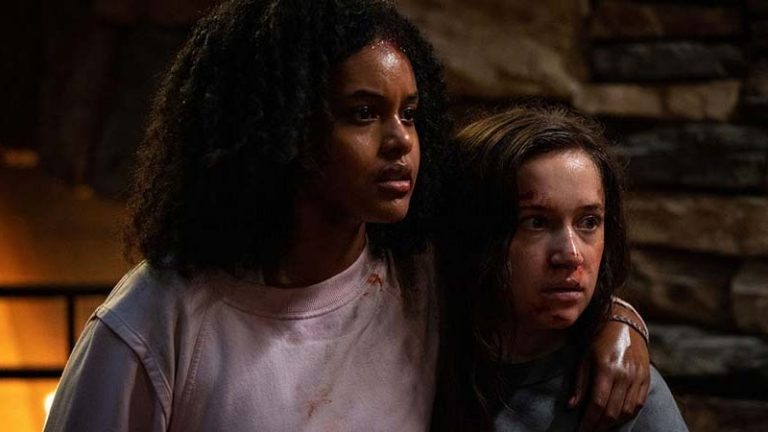It’s strictly on you whether you find the overall pretext compelling or not, but Gen Z builds its tastes—music, movies, trends, shows—on a bedrock of artifice. There’s real work involved, sure, but it’s often laced with plasticity and schmaltz that feels inescapable. In that sense, “KPop Demon Hunters” aligns all too well with how Netflix (generally) approaches cinema lately: break the mold of originality just enough to create the illusion of rebellion, while actually cementing one aesthetic. Directors Maggie Kang and Chris Appelhans, teaming up with Sony Pictures to realize their “2D aesthetics with three-dimensional language” vision, seem to surrender to that machine—only to rewire it from within. “KPop Demon Hunters” emerges original, entertaining, and surprisingly relevant, not by resisting its constraints, but by slyly redirecting them.
At its core, it’s about Huntrix, a K-pop girl group who double as demon hunters, facing off against a rival boy band that turns out to be demons in disguise. The real charm, though, lies in the cultural cocktail it shakes up for its Gen Z audience—a demographic already saturated with more than it’s emotionally equipped to process. Toward the closing credits, the film gives a neat nod to TWICE, a real-life three-girl South Korean band, and that meta-wink feels earned. The script leading up to it is peppered with familiar beats from the three-second attention economy of now—narrative stakes built around fears of losing relevance, fleeting trends, and parasocial meltdowns. In other words, it speaks the language of now without standing at the corner, grumpily declaring this as civilizational collapse.
That’s not to say it irresponsibly glamorizes it either. The screenplay—co-written by Kang, Appelhans, Danya Jimenez, and Hannah McMehan—understands that context often carries its own emotional weight, especially if the visuals and dialogue know how to hold hands. Fortunately, the film delivers on that. At heart, it’s an empathetic exploration of how identity and shame are culturally hardwired into us, now more universally than ever. Even its villain arcs avoid falling into the easy trap of “evil for evil’s sake.” Instead, monstrosity is rooted in betrayal, guilt, and the inability to evolve past our own inner rot. We only meet the current singing trio of this era, but it’s clear that Gwi-Ma—the ancient evil—could only be defeated now, because it’s only now that shame culture and generational silence are being openly confronted.
Though it never really steps outside the American animated filmmaking comfort zone, the film makes a visible effort to love K-pop for what it means to a diasporic Korean girl. The story, written by Maggie Kang—an America-based filmmaker who announced this project in 2021 as a tribute to her “roots” (a phrase you’ll hear every second Friday if you track U.S. film press)—feels personal, even when formulaic. That said, it also slips in a critique of the Korean pop industry’s glossed-over brutality. Idol culture as a militarized system—exhausting young bodies for aesthetic perfection—is present here, even if spoken about in a whisper. By the third act, emotional colonization via fame becomes an actual warfront before giving way to something more raw and grounded.
Still, don’t mistake “KPop Demon Hunters” for the movie equivalent of that pop-culture-savvy philosophical girlie you always want at brunch. Like most love letters, it indulges its own crushes. The writing swerves hard into full-blown K-drama territory when it thinks no one’s watching, and lingers there long enough to become noticeable. It’s already leaning into the classic fantasy arc, so there’s really no need for a full stretch of the hero and heroine floating in a pink cosmos, temporarily forgetting where they stand in the real world.
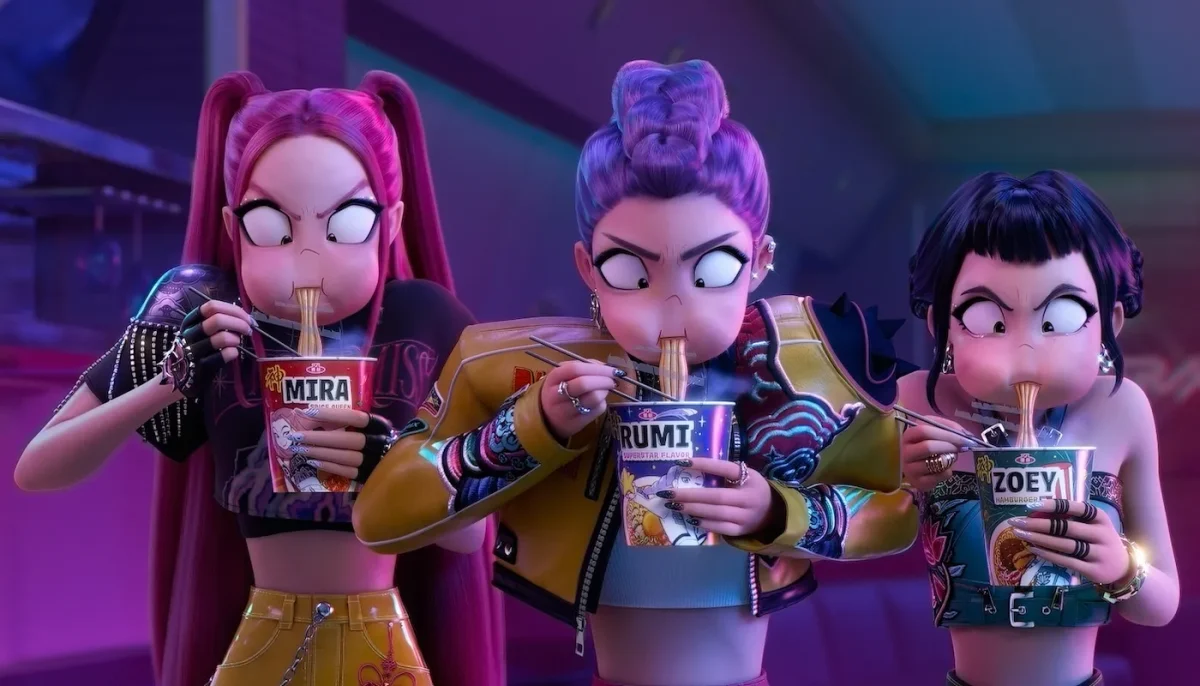
Despite its gloss and occasional corniness, this is ultimately a fun, disarming little film about confronting your inner demons and owning your identity, without treating any part of it as a defect. That kind of thematic honesty is rare in a product so clearly calibrated for global streaming. It’s self-aware, it’s genre-savvy, and it knows how to laugh at its own mood swings. And sometimes, that’s exactly what you need—a cultural chimaera that doesn’t pretend to be deeper than it is, but still has enough soul to leave a mark.
KPop Demon Hunter (2025) Movie Plot Summary and Synopsis:
For generations, demons preyed on humans, feeding their souls to Gwi-Ma. Eventually, three women rose as demon hunters and sealed the demons away from the human world by creating a barrier known as the Honmoon. Their legacy continued across bloodlines, with each new trio using their singing voices to keep the Honmoon intact. In the present day, the K-pop girl group Huntrix—comprising Rumi, Mira, and Zoey—carries on the tradition under the guidance of Celine, a former demon hunter who raised Rumi.
After defeating demons disguised as the pilot and cabin crew on their private jet and wrapping up a global tour, Huntrix cancels their planned two-week vacation and gears up to record a new single. But when Rumi begins losing her voice, it’s revealed she’s part demon. In a flashback, Celine explains that once all demons are eradicated, the Golden Honmoon—a final seal—will activate. It could permanently banish the demons and possibly erase Rumi’s demon marks.
How do demons fight back?
Meanwhile, in the demon realm, Gwi-Ma grows furious over his minions’ repeated failures. A demon named Jinu proposes a new tactic: create a K-pop boy group, the Saja Boys, to secretly siphon fans’ energy and weaken the Honmoon. Huntrix soon encounters the Saja Boys, and despite Mira and Zoey catching feelings for some of them thanks to their good looks, the group quickly uncovers their real identities. Still, they’re unable to stop them during a chaotic encounter that unfolds after crashing a reality TV interview. During the confrontation, Jinu discovers Rumi’s demon lineage but keeps it secret from her bandmates.
What does Jinu tell Rumi?
Later, Jinu sends his three-eyed bird and magical tiger to Rumi, inviting her to talk. She arrives in her pajamas, lightsaber in hand, ready to kill him. Instead, Jinu tells her that demons are haunted by shame and sorrow, reinforced by voices from Gwi-Ma. He reveals that 400 years ago, Gwi-Ma gave him a beautiful voice that lifted his family from poverty and made him a palace performer. But in exchange, he was condemned to the demon realm, now burdened by guilt over his family’s downfall.
What is Rumi’s plan?
With the Idol Awards approaching, Huntrix scrambles to create a new song to expose the Saja Boys. But the boys’ popularity soars, and fans start shipping the two groups together. Mira grows suspicious of Rumi, while Rumi herself begins questioning whether their song is too vengeful. Torn between her bloodlines, Rumi starts sympathizing with the demons and suggests a plan to Jinu: if the Saja Boys help Huntrix win the Idol Awards and reshape the Honmoon, maybe the demons could finally be free.
What does Gwi-Ma reveal to Jinu?
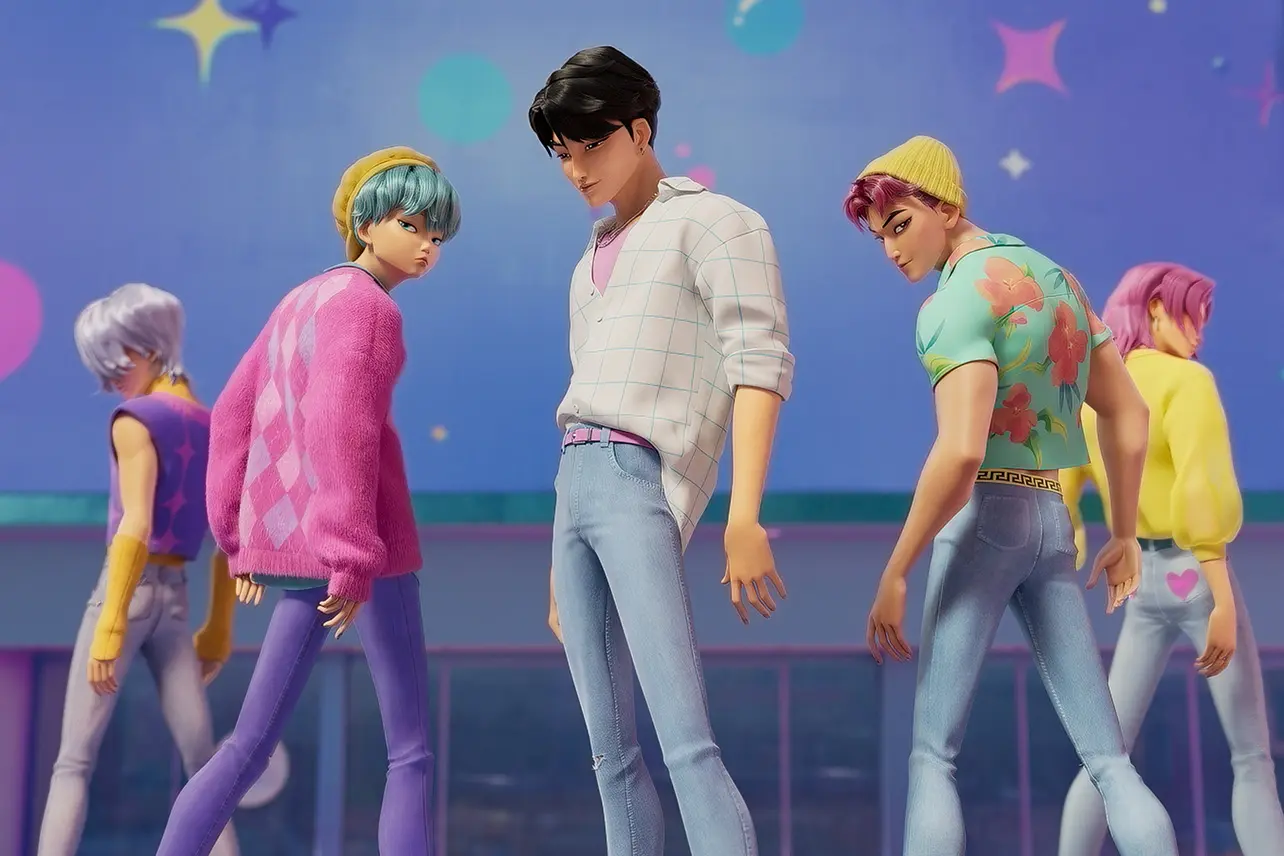
After a horrific subway massacre carried out by demons, Mira insists they focus on saving lives instead of rewriting lyrics. As Rumi and Jinu grow closer, she confesses that her shame over her heritage weakened her voice, but her conversations with him have helped restore it. After singing together, Jinu no longer hears Gwi-Ma’s voice and resolves to sabotage the Saja Boys’ mission. But Gwi-Ma confronts him, reminding him of the truth he’s hidden—that Jinu had willingly abandoned his family for fame. Gwi-Ma threatens to return the voices unless Jinu obeys.
KPop Demon Hunters (2025) Movie Ending Explained:
What happens at the Idol Awards?
At the International Idol Awards, the Saja Boys fail to appear, and Huntrix performs “Golden,” a song championing unity over demon hatred. But impostor demons posing as Mira and Zoey manipulate Rumi into singing “Takedown,” during which they expose her demon marks onstage. Rumi flees and runs into the real Mira and Zoey, who feel betrayed by her secrecy and alliance with Jinu. She confronts Jinu, who at first denies everything, but then admits he abandoned his family, proving Gwi-Ma’s accusation true.
How is Gwi-Ma defeated?
Gwi-Ma casts a trance over Mira, Zoey, and the public, luring them into the Saja Boys’ final performance—one meant to destroy the Honmoon and unleash him. Celine offers to cover up the chaos, but Rumi refuses. Embracing her demon identity, she lashes out at Celine for never fully loving her and walks away.
Rumi breaks into the final performance with a new song addressing shame and fear. Her voice disrupts Gwi-Ma’s trance. Reunited, Huntrix fights back and frees the audience. Gwi-Ma nearly kills Rumi, but Jinu sacrifices himself to save her, transferring his restored soul into her. The empowered Huntrix defeats Gwi-Ma and the Saja Boys, ultimately resealing the demons and restoring the Honmoon. Afterward, Rumi—no longer ashamed of who she is—relaxes with Mira and Zoey. Though they plan a three-month hiatus, it obviously lasts mere seconds before Huntrix reemerges in public to reconnect with their fans.


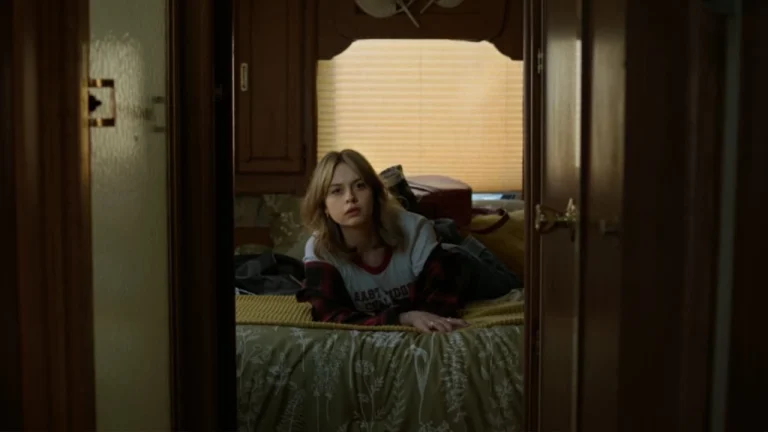


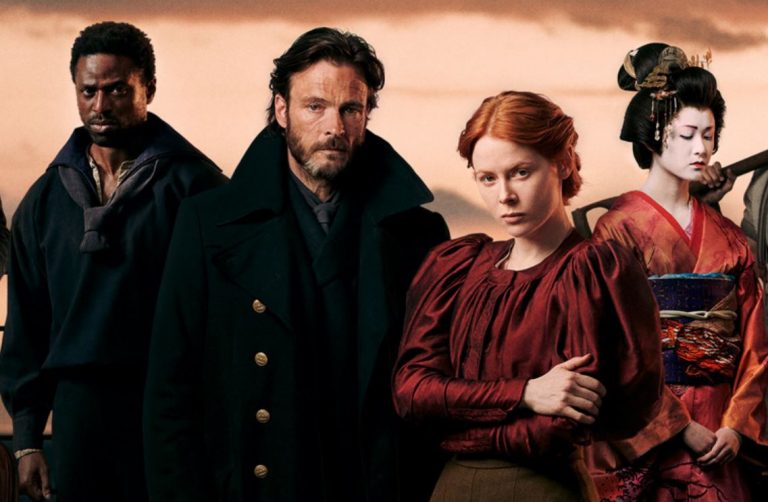
![The Big Sick [2017]: A Well Rounded and Deeply Felt Dramedy](https://79468c92.delivery.rocketcdn.me/wp-content/uploads/2017/09/big_sick_the_-_kazan_and_nanjiani-768x416.jpg)
